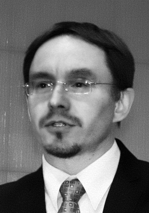Electing the president – the touchstone of interparty consensus policy
The Riigikogu Toimetised roundtable conversation, moderated by Aivar Jarne, head of the Riigikogu press service and including members of the Riigikogu Rain Rosimannus of the Reform Party faction, Eiki Nestor of the Social Democratic Party faction, Agu Uudelepp, chief of information of the People’s Union Party, Vello Pettai, University of Tartu political science scholar, and Argo Ideon, journalist of Eesti Ekspress, discussed the fact that for the third consecutive time the Riigikogu was not able to elect the president on its own and the right to elect passed to the electoral body.
In spite of this fact, the participants in the roundtable were not convinced that the electoral procedures should definitely be changed, especially since that the Riigikogu was fairly close to electing the president this time around. They added that if there were no fallback option like the electoral body, the members of parliament would be more motivated to gather themselves together and reach an agreement with regard to the president and not continue with three empty voting rounds every five years and then the convoking of the electoral body. In the opinion of some officials, it should also be considered whether the necessary number of votes in the third round of Riigikogu voting might be lowered from 68 to, say, 60. On the other hand, introducing popular presidential elections, an option often discussed in Estonia, no longer seems to be of much interest to any party. Rather there is a focus on making small changes to the current system which would above all strengthen the will of the parties to be more ready to elect a president. Neither is any political force in Estonia prepared to expand the powers of the president, as was revealed in the roundtable, there is only preparedness for a certain amount of fine-tuning.





